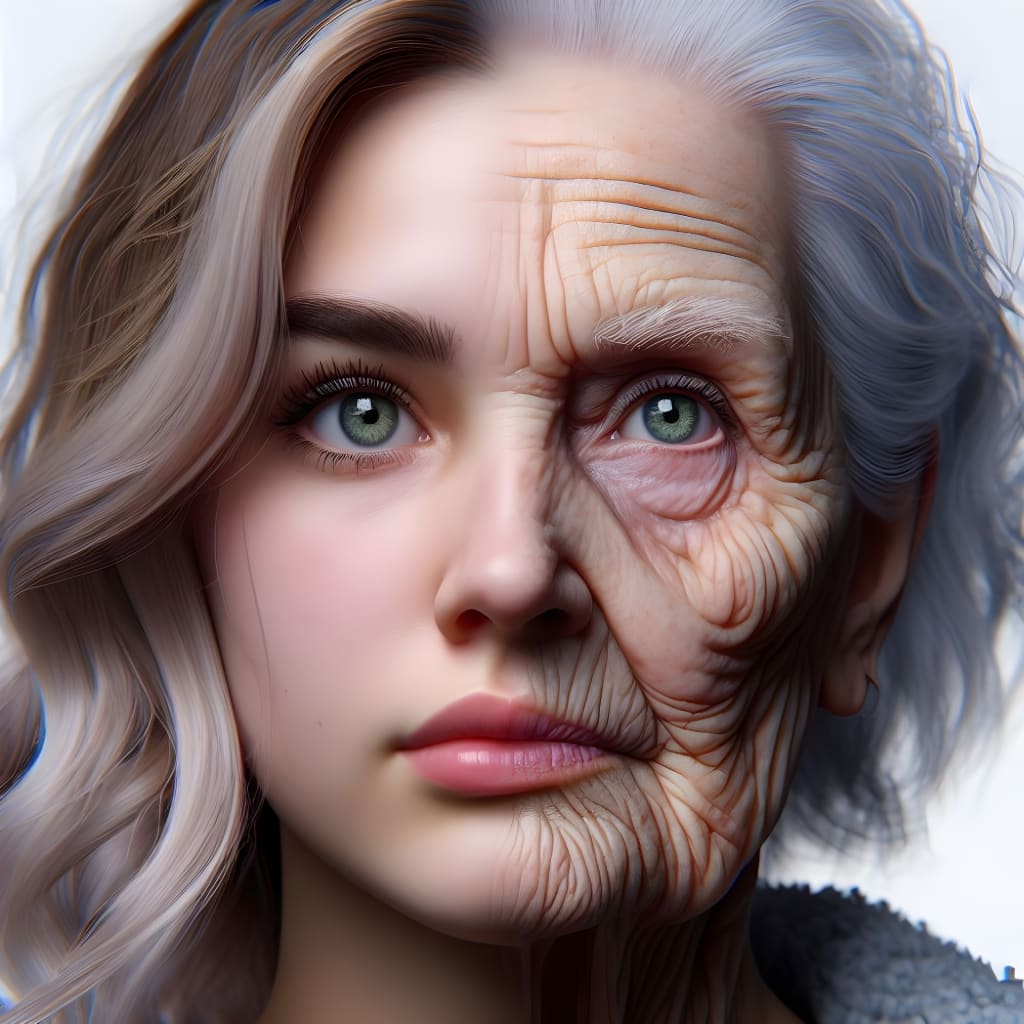The Future of Anti-Aging: Revolutionary Treatments and Their Impact.
Timeless Beauty: Effective Anti-Aging Techniques for a Youthful Glow.

Aging it is the price we pay for a living. But it might not always be this way. Increasingly science is revealing how we can slow our biological clocks. Lots of investors purring their money to these researches. But does the science live up to the hype can we really slow down aging or even stop it altogether.
Dr. Nir Barzilai- at Albert Einstein College of Medicine, is an Israeli geneticist and longevity researcher. He spent his last 25 years studying centenarian tortoises, according to his researches, several genes in centenarian tortoises causes their healthy longevity. Dr. Nir Barzilai- just one of a growing number of scientists chasing a future where aging is no longer inevitable.

But what is aging, the longer you live the greater the impact of molecular and cellular damage in your body bringing you closer to death as to why we age one explanation is the Disposable Soma Theory. There is an evolutionary trade-off between repair and reproduction. Disposable soma theory of aging states that organisms age due to an evolutionary trade-off between growth, reproduction, and DNA repair maintenance. The purpose of an organism is to reproduce and since it is always at risk of getting killed by the outside world. It makes sense to get your reproducing done as fast as possible so organisms tend to reproduce when they are young. Evolutionary pressure to keep them in all working order as they get older diminishes an adult. Human's risk of death doubles roughly every eight years at 30 years of age. Your odds of dying in the next year are less than 0.1% at 60 years of age that risk is 1%. By the time you turn 90 it's over 15%. But this is not true for all animals, Aldabra giant tortoises for example can live to well over 100 and as adults the risk of death remains roughly constant at just over 2% per year biologically speaking, they hardly age at all.
In the 1930s a paper by Clive McCay, a scientist at Cornell University in New York state proved just that with one simple modification he revealed a way to make animals stay healthy for longer and even prolong their lives. McKay found that if he restricted the diet of rats to near starving levels, he could increase their lifespan by up to 33%. This phenomenon is true for every animal has been tested on from yeast to dogs. It sounds counter-intuitive but in evolutionary terms it fits with the Disposable Soma theory. But keeping yourself hungry for a longer healthier life is far from ideal. The trick would be to fool the body into thinking it is starving when it is not and the key to that may lurk in our DNA.

Dr. Cynthia Kenyon, Ph.D.-She is the vice president of aging research at Calico Research Labs, and emeritus professor of biochemistry and biophysics at the University of California, San Francisco (UCSF). In the 1990s Dr. Cynthia Kenyon made headlines when her groundbreaking work with round worms showed for the first time that genes can play a part in aging.
Dr. Cynthia Kenyon and her research colleague found that changing a gene called “Daf-2” could in one Fell Swoop double the lifespan of the animal and cause it to age much more slowly than normal so that it stayed Young much longer than normal. The reason that this Gene change slows down aging is because the genes that Dr. Cynthia has changed are involved in a kind of programmed system of resiliency, They make the animals less sensitive to pathogens. They improve the ability of the animal to repair its DNA. Since then, scientists have tweaked various genes in roundworms resulting in mutants that can live to over five months old. Ten times longer than those without the genetic changes. They are the same changes responsible for increasing lifespan in near starving animals only this time the animal can eat as much as it wants because its genes have been tricked into thinking it is starving.

Researchers have discovered other genes that affect Aging in humans but changing genes in people is irreversible. More practical way to slow aging would be to change not genes themselves but how they're read modifying something called the Epigenome.
Epigenetics literally means on top of genes so you can think of it as a layer of information that are added to the DNA. The Epigenome Tells genes when to turn on and off. There is a very promising therapeutic Avenue that is being investigated now called Epigenetic Reprogramming. Tweaking the Epigenome of mice has already shown it's possible to turn back a cell's biological clock in particular manipulating four proteins known as “Yamanaka factors” and if you express those “Yamanaka factors” in old cells they change the Epigenome and push the cell back in time.
Epigenetic treatments are showing so much potential that research money is flooding in. Startups laboratories betting they can modify the epigenome to slow down aging or popping up all over Silicon Valley and elsewhere. The claims might sound outlandish but the science is real. Epigenetics or Epigenetic patterns are laid down by enzymes which by Nature catalyze mostly reversible reactions and therefore if we can target the correct enzymes to change those patterns and convert them back to the youthful pattern then it means that Epigenetics is a druggable field of research in terms of anti-aging.
While a drug that can fight aging at the DNA level remains closer to Theory than practical application other methods of turning back the biological clock already exist. Some attempts to slow aging are raising eyebrows. Take Brian Johnson, the man whose feel for a long life is viewed as obsessive by many. In his quest to remain forever young he has pushed boundaries even using his own son's blood. As macabre as it sounds it seems to work in animals it's known as Parabiosis. It is almost like another vampire story. Parabiosis is when you take two animals of the same species and link their blood circulations together. If you do it with animals of significantly different ages so one is quite young and one is quite old the older animal lives longer than you would expect.
Although how much of this is down to special qualities in the younger blood is open to debate. There probably are some factors of the crossing over from the young to the old but it looks as though a lot of the effect is coming simply from the dilution of the bad factors of the old animal.
Not much is known yet about why this works but the microbiome the bacteria in the gut changes with age. presumably it's adapting to the host. We know the composition of the microbiome changes as the animal gets old and it becomes more specific so this might be a way that you can get its longevity through the gut. It might take blood and guts to stay this young but a range of different drugs are also showing promise at slowing down aging and some of them have been on pharmacist shelves for years.

A class of drugs that includes the “Dasatinib”, used to treat leukemia has been found to extend life in Animals by attacking a major contributor to aging. Metformin it's been also taken off label for longevity purposes. Metformin is a common drug to treat diabetes but also the people who are using that are protected against variety of age-related diseases.
Metformin mimics dietary restriction by lessening the amount of sugar the body produces and absorbs. The way it works inside a cell is not completely understood but it reduces inflammation and helps break down accumulated rubbish in studies. Diabetics taking metformin have lived longer and healthier than people not on the drug whether they were diabetic or not. Another drug that seems to slow aging is “Rapamycin” already approved for use with organ transplants. Rapamycin is an immunosuppressant. It changes the way that nutrients are sensed and changes to the way that they're metabolized in ways which are useful to extending life. Rapamycin boosts the way cells clear up junk that builds up inside them with age. This means they can function better like a younger version of themselves. Whether their are drugs that already exist or new ones that change our epigenome anti-aging treatments are coming and the need for them has never been greater.
In conclusion, Dr. Cynthia Kenyon, Ph.D. said to use, “we all know that we have a demographic shift in which fewer young people are supporting more old people so it's really really important that our older people stay vibrant and Youthful and productive it's also something we all want for ourselves and for our family and people we love and for everybody a future where we grow old without aging would benefit billions and give the world an economic Boon too”
it's not a billion dollar question its trillions. If people lived longer with a sharper decline in old age it would reduce medical expenses resulting from age-related diseases. Although it is impossible to put a price on extra years of healthy life one day hopefully more of us will be as independent into old age.
About the Creator
Enjoyed the story? Support the Creator.
Subscribe for free to receive all their stories in your feed. You could also pledge your support or give them a one-off tip, letting them know you appreciate their work.





Comments (1)
Oh, how fearful when it comes to the edge of the life.